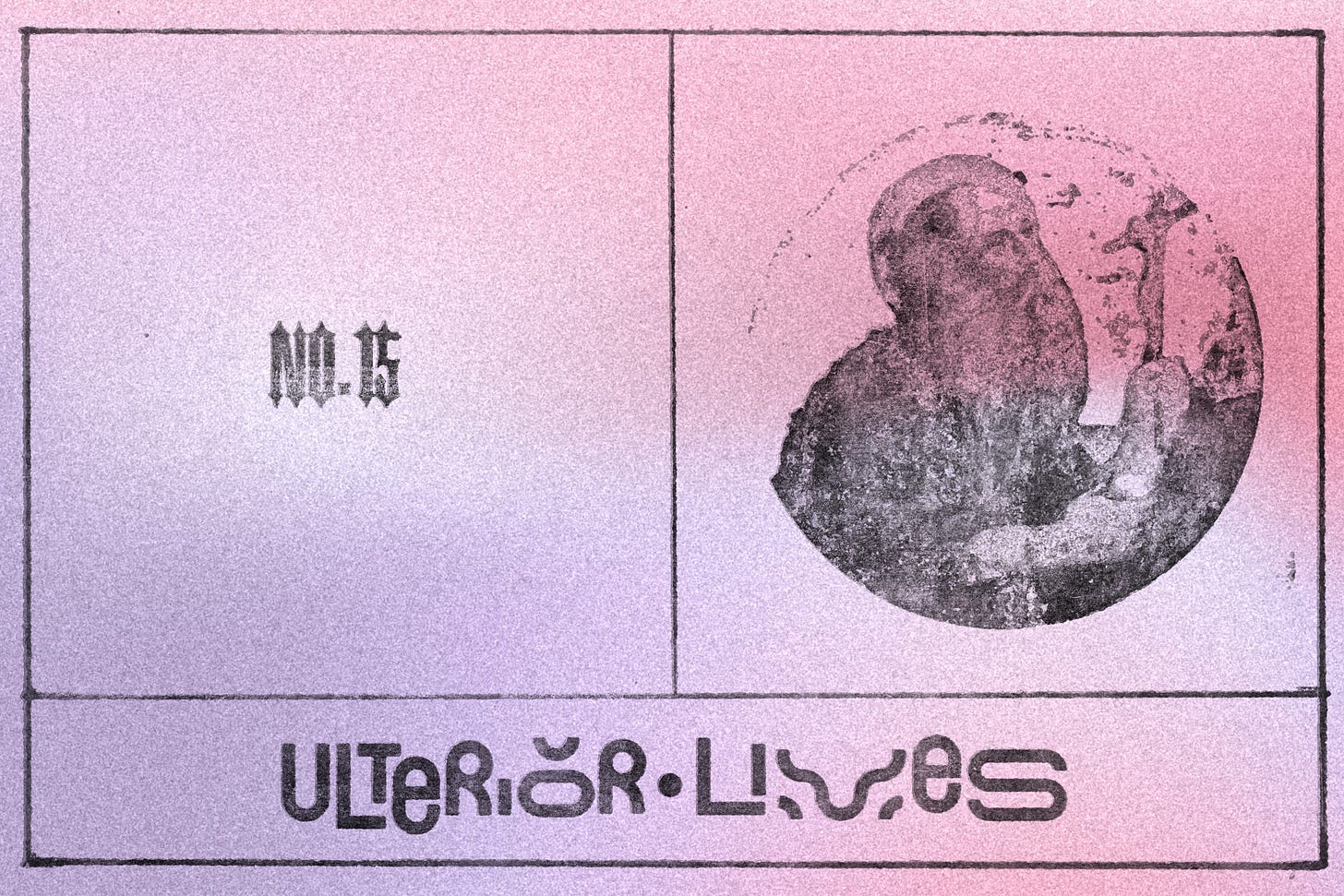The troubled days of St Jerome
Or, the reassuring complexity of the 'Patron Saint of Difficult Personalities'
Part 15 of our Ulterior Lives series: A Slow Research Project into The Outsider Politics of Monasticism. Read the introduction here.
Our aim in this series has been to find patterns that make sense of how the Desert Hermits lived and why their eccentric ways might make sense, as a political economy. After all, the very sensible arrangement I presently live in, at the edge of Western progress and development, makes less and less sense every day. There is an odd coherence to the mad lives of the hermits, if we dare to look for more than a romanticised spirituality. There is a surprising common sense to the social vision that is coded into these bizarre tales.
But of course the tales often sound rather mythic. I don’t think this means we can't learn anything from them with any certitude. If one were to suggest that some of the tales may have grown in the telling, even these are no less pertinent as examples of the values, visions and ideals that people of that time and place held sacred and good.
That said, among so many tales of miracles and crushing asceticism, it might help to humanise the vision a little. St Jerome, who was to become the patron saint of translators, librarians, archivists, scholars and “people with difficult personalities,” spent time as a hermit in the Egyptian desert, before returning to Rome and the life of a scholar. Here we have something we lack in the Sayings of The Desert Fathers — first hand reflections on desert life, from someone who had lived it and returned to the metropolis:
“Oh how many times did I, set in the desert, in that vast solitude parched with the fires of the sun that offers a dread abiding to the monk, how often did I think myself back in the old Roman enchantments. There I sat solitary, full of bitterness; my disfigured limbs shuddered away from the sackcloth, my dirty skin was taking on the hue of the Etheopian’s flesh: every day tears, every day sighing: and if, in spite of my struggles, sleep would tower over and sink upon me, my battered body ached upon the naked earth. Of food and drink I say nothing, since even a sick monk uses only cold water, and to take anything cooked is wanton luxury.
Yet that same I, who for fear of hell condemned myself to such a prison, I, the comrade of scorpions and wild beasts, was there, watching the maidens in their dances: my face haggard with fasting, my mind burnt with desire in my frigid body, and the fires of lust alone leapt before a man prematurely dead. So, destitute of all aid, I used to lie at the feet of Christ, watering them with my tears, wiping them with my hair, struggling to subdue my rebellious flesh with seven days’ fasting.
I do not blush to confess the misery of my hapless days: rather I could weep that I am not as I was once. I remember crying out till day became one with night, nor ceasing to beat my breast until my Lord would chide and tranquility return. I grew to dread even my cell, with its knowledge of my imaginings; and grim and angry with myself, I would set out solitary to explore the desert: and wherever I would spy the depth of a valley or a mountainside or a precipitous rock, there was my place of prayer, and there the torture house of my unhappy flesh: and, the Lord Himself is witness, after many tears, and eyes that clung to heaven, I would sometimes seem to myself to be one with the angelic hosts.”
This sketch journeys into an experience of extremes, between ecstasy and despair: a limit experience, a chosen madness. This is not at all out of tune with what we find in The Sayings, and yet there is something candid and far less resolved about Jerome’s personal reflections; echoes of regret and perhaps a very human feeling of incompleteness.
Jerome had a fiery temperament and bold, sometimes malicious pen. He was prone to making enemies. A charismatic figure who led many senatorial women from their wealth to the desert, he was also a bitter and hateful adversary: a complex character, as they say.
Having made too many enemies in Rome, Jerome’s latter days were spent in Bethlehem where he accompanied his wealthy patron Paula on her quest to found a monastery there. Palladius, the Bishop of Helenopolis, had visited and later reflected frankly: “Jerome’s command of the Roman speech was superb… his genius renowned: but his malice was such that no saint could live within miles of him. There was Oxperentius from Italy, Peter from Egypt, Simeon too, all of them men I had observed myself… and he got rid of them all.” It was added, after Jerome’s passing, that even generous observers perceived a controlling mis-relation held by Jerome over Paula, whom he outlived, and whose daughter had also died young after following Jerome’s exhortations to an ascetic life.
Tales from the desert are often disturbing, but usually for different reasons. This series has sought to stay with the trouble of stories in which brutal austerity meets a mythic image of human peace, gentleness and balance. This story disturbs in tones more familiar to common human experience: failed and flailing discipline, troubled ambition, wounding power-relations, loss, regret… everything the hermits would seek to be free of. But this too is a tale from the desert.
I have no doubt that all the idealised images we excavate here are laden with truth and value as visions of some unlikely ulterior utopia; as visions that call to possibilities of relinquishment, possibilities that are not so far from the fingertips of lived experience in a rupturing world. But here alongside is another story, and probably one of many. Here is a story of the human mess and failure and farce that commonly accompanies the emergence of new and ulterior worlds.
Not your friendly Instagram mystic
Christian mystics have a curious magnetism in these troubled times. Can we understand them on their own terms? (From 'Notes on Poverty, Death and Nothingness')







